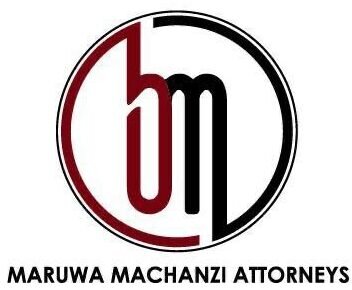Best Lawsuits & Disputes Lawyers in Harare
Share your needs with us, get contacted by law firms.
Free. Takes 2 min.
List of the best lawyers in Harare, Zimbabwe
About Lawsuits & Disputes Law in Harare, Zimbabwe
Lawsuits and disputes in Harare, Zimbabwe, encompass a range of legal conflicts that may arise between individuals, companies, or institutions. These disputes can involve civil matters such as breach of contract, property issues, personal injury claims, and family law conflicts, among others. The legal system in Zimbabwe follows a mixed legal system of English Common Law and customary law, meaning cases are often resolved through negotiation, mediation, or court litigation. The judiciary in Harare, like in other parts of Zimbabwe, aims to provide fair and just outcomes based on the country's legal precedents and statutory laws.
Why You May Need a Lawyer
There are several situations where seeking legal advice or representation might be necessary. Common scenarios include:
- Contract Disputes: When there's a disagreement over the terms or fulfillment of a contract, a lawyer can help resolve the issue.
- Property Disputes: Issues involving ownership, leases, or boundaries often require legal intervention.
- Personal Injury Claims: If you have suffered harm due to another's negligence, legal advice can help you seek compensation.
- Family Law Matters: Divorce, child custody, and inheritance disputes may require legal assistance to ensure fair resolution.
- Compliance Issues: Businesses often need legal guidance to navigate regulatory compliance and avoid disputes.
Local Laws Overview
The legal framework for lawsuits and disputes in Harare is influenced by several key statutes and legal principles:
- Civil Law: Governed by the Civil Procedure Act, it outlines the processes for civil litigation.
- Contract Law: Contract disputes are typically resolved under common law principles and the Contractual Penalties Act.
- Property Law: The Deeds Registries Act and the Land Survey Act are crucial in property-related disputes.
- Family Law: The Matrimonial Causes Act dictates family law procedures, including divorce and child custody.
- Dispute Resolution: Zimbabwe advocates for alternative dispute resolution mechanisms such as mediation and arbitration to settle conflicts outside the courtroom.
Frequently Asked Questions
What should I do if I am served with a lawsuit?
Immediately consult with a lawyer to understand your legal options and formulate an appropriate response within the stipulated timeframe.
Can I represent myself in a lawsuit?
While self-representation is possible, having a lawyer increases your chances of a favorable outcome due to their expertise and experience.
How long does it take to resolve a lawsuit in Harare?
The duration varies based on case complexity, court workload, and whether it is settled through litigation or alternative dispute resolution.
What is the cost of hiring a lawyer for a dispute?
Legal fees can vary widely based on the lawyer's experience, the type of case, and payment structure (hourly rate vs. flat fee).
What are the main types of alternative dispute resolution?
Mediation and arbitration are the most common, offering potentially quicker and less adversarial solutions than traditional litigation.
How can I verify a lawyer's credentials in Zimbabwe?
Check if they are registered with the Law Society of Zimbabwe, which maintains a list of practicing lawyers.
How is a small claims dispute handled?
Disputes involving small monetary amounts can be settled in the Small Claims Court, which is designed to be more accessible and informal.
Is there a statute of limitations for filing a lawsuit?
Yes, different claims have different limitation periods; consulting with a lawyer can clarify specific deadlines for your case.
What happens if I lose a lawsuit?
You may be required to pay the other party’s legal costs, but you also have the option to appeal the decision under certain circumstances.
What role does customary law play in disputes?
Customary law can be considered in disputes involving traditional practices, especially in family law, and land-related issues.
Additional Resources
For further assistance with lawsuits and disputes in Harare, you may find these resources and organizations helpful:
- The Law Society of Zimbabwe: Provides a directory of licensed legal practitioners.
- ZimLegal Information Institute: Offers access to free legal resources and case law.
- Small Claims Court: For resolving less complex, small-value disputes efficiently.
- Zimbabwe Lawyers for Human Rights: Assists with legal matters, particularly focusing on human rights-related disputes.
- Harare Magistrates Court: Handles various lawsuit cases and offers information on the litigation process.
Next Steps
If you believe you need legal assistance for a lawsuit or dispute in Harare, consider the following steps:
- Identify the Nature of Your Dispute: Clearly articulate the issue at hand to understand what legal expertise you require.
- Consult with a Lawyer: Seek consultations with lawyers experienced in the specific area of your dispute to get preliminary advice and strategies.
- Gather Relevant Documentation: Collect all related documents, such as contracts, correspondence, and evidence to support your case.
- Consider Alternative Dispute Resolution: Explore non-litigious options like mediation or arbitration, which may offer quicker and more amicable resolutions.
- Proceed with Legal Action: If litigation is necessary, work with your lawyer to file the appropriate paperwork and prepare for court proceedings.
Lawzana helps you find the best lawyers and law firms in Harare through a curated and pre-screened list of qualified legal professionals. Our platform offers rankings and detailed profiles of attorneys and law firms, allowing you to compare based on practice areas, including Lawsuits & Disputes, experience, and client feedback.
Each profile includes a description of the firm's areas of practice, client reviews, team members and partners, year of establishment, spoken languages, office locations, contact information, social media presence, and any published articles or resources. Most firms on our platform speak English and are experienced in both local and international legal matters.
Get a quote from top-rated law firms in Harare, Zimbabwe — quickly, securely, and without unnecessary hassle.
Disclaimer:
The information provided on this page is for general informational purposes only and does not constitute legal advice. While we strive to ensure the accuracy and relevance of the content, legal information may change over time, and interpretations of the law can vary. You should always consult with a qualified legal professional for advice specific to your situation.
We disclaim all liability for actions taken or not taken based on the content of this page. If you believe any information is incorrect or outdated, please contact us, and we will review and update it where appropriate.
Browse lawsuits & disputes law firms by service in Harare, Zimbabwe
Harare, Zimbabwe Attorneys in related practice areas.
















